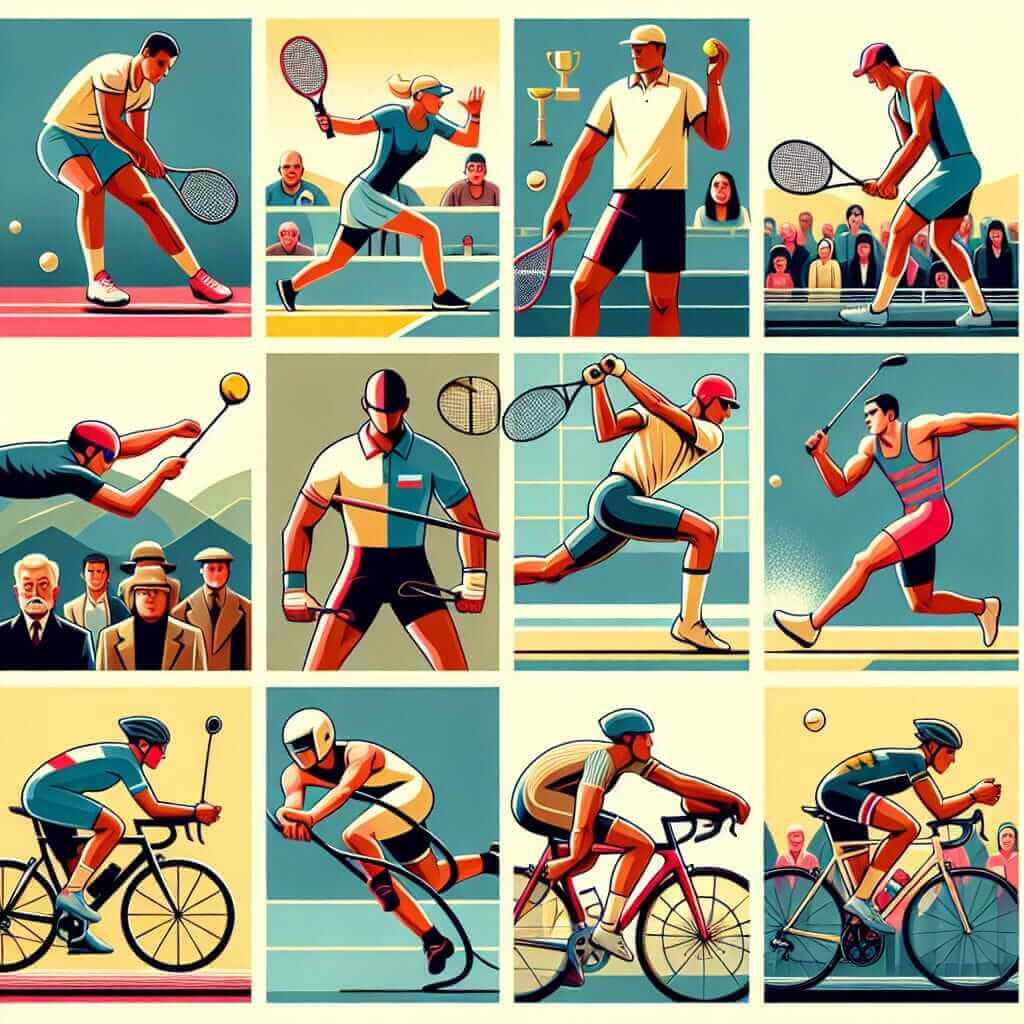As an IELTS instructor with over 20 years of experience, I understand the importance of possessing a rich vocabulary to excel in the Speaking and Writing sections. Using precise and varied language not only showcases your command of English but also allows you to articulate your ideas effectively. This is particularly crucial when discussing specific topics, like the tactics employed in individual sports.
This comprehensive guide will equip you with the necessary vocabulary to confidently discuss strategies in individual sports, boosting your IELTS band score. We will delve into the significance of this vocabulary, explore various tactical terms, and provide practical examples and tips to enhance your language skills.
Why is “Tactics” Vocabulary Important for IELTS?
The IELTS exam assesses your ability to communicate effectively in English across various topics. Sports frequently appear as a subject in both the Speaking and Writing modules. You may be asked:
- Speaking:
- To describe your favorite sport and explain its rules and strategies.
- To discuss a time you witnessed a strategic play in a sporting event.
- Writing Task 2:
- To analyze the importance of mental versus physical tactics in individual sports.
- To compare and contrast different approaches athletes take to gain a competitive edge.
Possessing a strong vocabulary related to “tactics” enables you to:
- Articulate yourself precisely: Instead of using generic terms like “good” or “bad,” you can use specific words like “aggressive” or “defensive” to describe an athlete’s approach.
- Demonstrate your language range: Examiners look for a variety of vocabulary. Using synonyms like “technique,” “strategy,” or “game plan” instead of repeating “tactics” showcases a wider lexicon.
- Enhance your argument: By employing specific tactical terms, you provide more context and depth to your arguments, whether you’re analyzing a strategy or comparing different approaches.
Exploring Tactical Vocabulary: From “Aggressive” to “Zen-like”
Let’s explore some powerful vocabulary to describe tactics in individual sports:
General Tactics:
- Aggressive/Attacking: This describes a player who constantly pushes the pace, takes risks, and aims to dominate the opponent. (e.g., “Serena Williams is known for her aggressive playing style, often going for winners on her first serve.”)
- Defensive/Conservative: This refers to a player who focuses on minimizing mistakes, waiting for the opponent to falter, and relying on consistency. (e.g., “Rafael Nadal’s defensive skills on clay courts are legendary; he retrieves almost every shot.”)
- Strategic/Calculated: This describes a player who analyzes the opponent’s weaknesses, plans moves in advance, and adapts their game plan based on the situation. (e.g., “Magnus Carlsen’s strategic depth in chess is unmatched; he anticipates his opponents’ moves several steps ahead.”)
- Patient/Disciplined: This refers to a player who waits for the right opportunities, avoids rushing into shots, and maintains focus over long periods. (e.g., “Roger Federer’s patient approach allows him to construct points carefully and dictate the rallies.”)

Sport-Specific Tactics:
- Boxing: Counterpunching, clinching, footwork, head movement
- Tennis: Serve and volley, baseline play, drop shot, lob
- Cycling: Drafting, breakaway, attack on the climb, time trialing
- Golf: Course management, club selection, putting strategy
- Swimming: Pacing, stroke technique, turns, underwater dolphin kicks
Describing Mental Tactics:
- Mental Fortitude/Resilience: The ability to stay focused and determined under pressure. (e.g., “Despite facing match points, she displayed incredible mental fortitude and fought back to win.”)
- Visualization/Imagery: The technique of mentally rehearsing scenarios and strategies. (e.g., “Many athletes use visualization to prepare for competitions, mentally going through their routines and game plans.”)
- Mind Games/Psychological Warfare: Tactics used to distract or intimidate opponents. (e.g., “Some tennis players engage in mind games, using time violations or exaggerated reactions to disrupt their opponent’s rhythm.”)
IELTS Examples and Tips:
- Speaking Part 2: “Describe a time you watched a sporting event that was particularly exciting.”
- Don’t just describe the action: Instead of saying, “He played really well,” use specific vocabulary to analyze the tactics employed. For example, “He employed an aggressive, attacking style, constantly putting his opponent on the back foot with powerful groundstrokes.”
- Writing Task 2: “Some people believe that physical strength is more important than mental strength in individual sports. To what extent do you agree or disagree?”
- Use examples to illustrate your points: “While physical strength is undoubtedly important in sports like tennis and boxing, mental fortitude often proves to be the deciding factor. For instance, a tennis player with exceptional mental resilience can maintain their composure during tie-breakers and pressure points, giving them a competitive edge.”
By incorporating this specialized vocabulary and following these tips, you will significantly enhance the quality of your responses and impress the IELTS examiners. Good luck with your preparation!